Projects
Together with volunteers, many small donors and large sponsors, the non-profit WaterFoundation has launched numerous projects since it was founded in 2000, providing tens of thousands of people with drinking water and enabling many families to live in dignity.
Where do we work?
After successfully implementing numerous projects in Bolivia, Burkina Faso, Chile, Eritrea, Ethiopia, Ghana, India, Morocco, Nepal, Palestine, Senegal, Zimbabwe, Uganda, and Uzbekistan, the WaterFoundation has been focusing its activities in the project areas of water supply and village development on the countries of Ethiopia and Eritrea since 2018. Since 2020 Bolivia, Peru, and Tansania are additional focus areas. (Due to the political situation in Eritrea no new projects can be started there.)
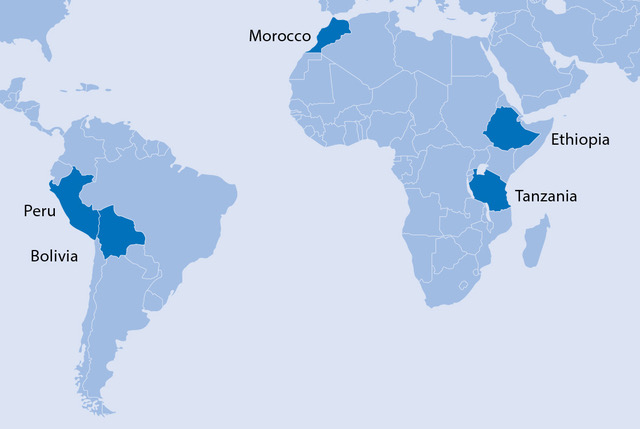
Current Projects
Bolivia – CloudFisher in Alto veladero (2020-2022)
Bolivia – Reforestation and water supply in Comarapa/Amazonas (2024-2026)
Ethiopia – Sanitation project in Bilaa (2021-2023)
Ethiopia – Reforestation in Dirre Inchini (2022-2025)
Ethiopia – Women’s self-help groups (2023-2024)
Ethiopia – Water supply in the Amhara Region (2023-2026)
Peru – Repanas in Abancay (2021-2024)
Peru – Sanitation in Pucuta (2022-2023)
Peru – CloudFisher near Lima (2022-2025))
Tanzania – CloudFisher in Qameyu and Umagi (2020-2022)
Tanzania – Repair of defective water pumps and training of mechanics in Kilombero (2024-2025)
Tanzania – Menstruation hygiene management for girls in Kilombero (2023)
OUR HIGHLIGHT:
What do we do?
Well construction and spring tapping
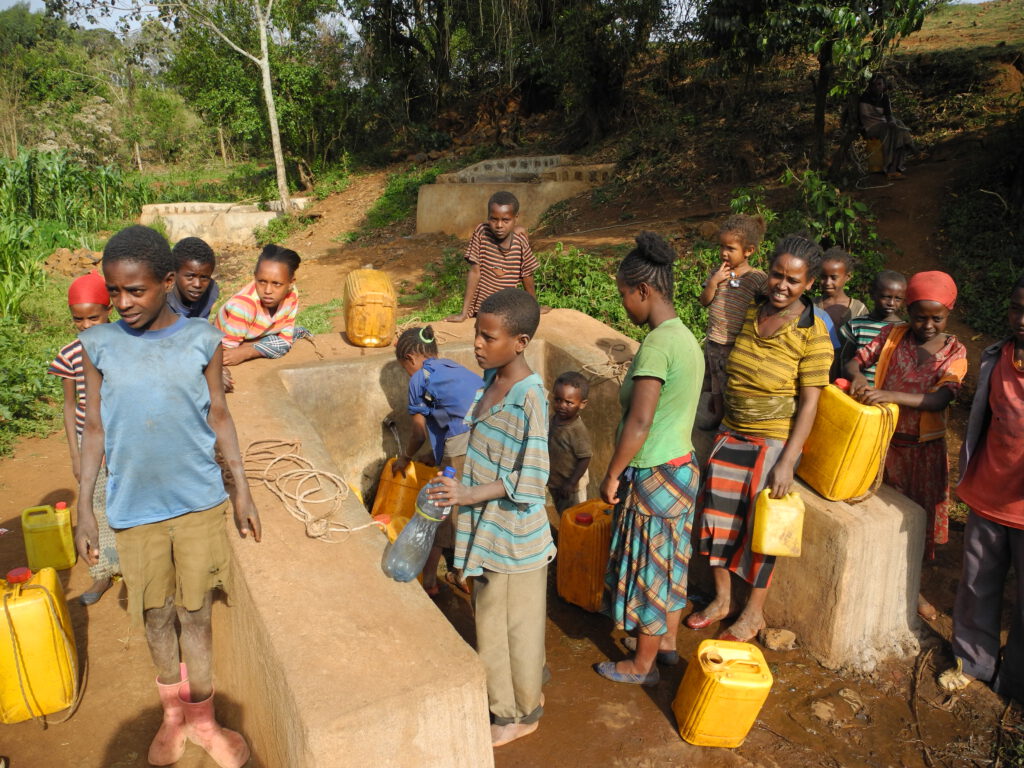
Many schools, rural health stations, entire villages and countless people do not have sufficient clean drinking water. The WaterFoundation therefore initiates numerous smaller and larger spring tapping projects, builds walls, concretes the place where the spring water comes to the surface, drills or digs wells, builds water tanks and installs pipelines to transport the drinking water. Where water pipes cannot (yet) be laid, the WaterFoundation distributes donkeys to carry the water.
Donkeys as water carriers

Due to climate change, the groundwater level is dropping dramatically in many areas of Africa. Wells are drying up and the distances to the still open water points are long. Traditionally, it is women and girls who walk for hours with heavy canisters or calabashes on their backs to fetch drinking water to supply their families. With the distribution of specially equipped donkeys, this deplorable situation can be remedied quickly and inexpensively. The physical exertions are ended, girls can attend school instead, women can work in the fields and take care of the family.
CloudFisher fog collector
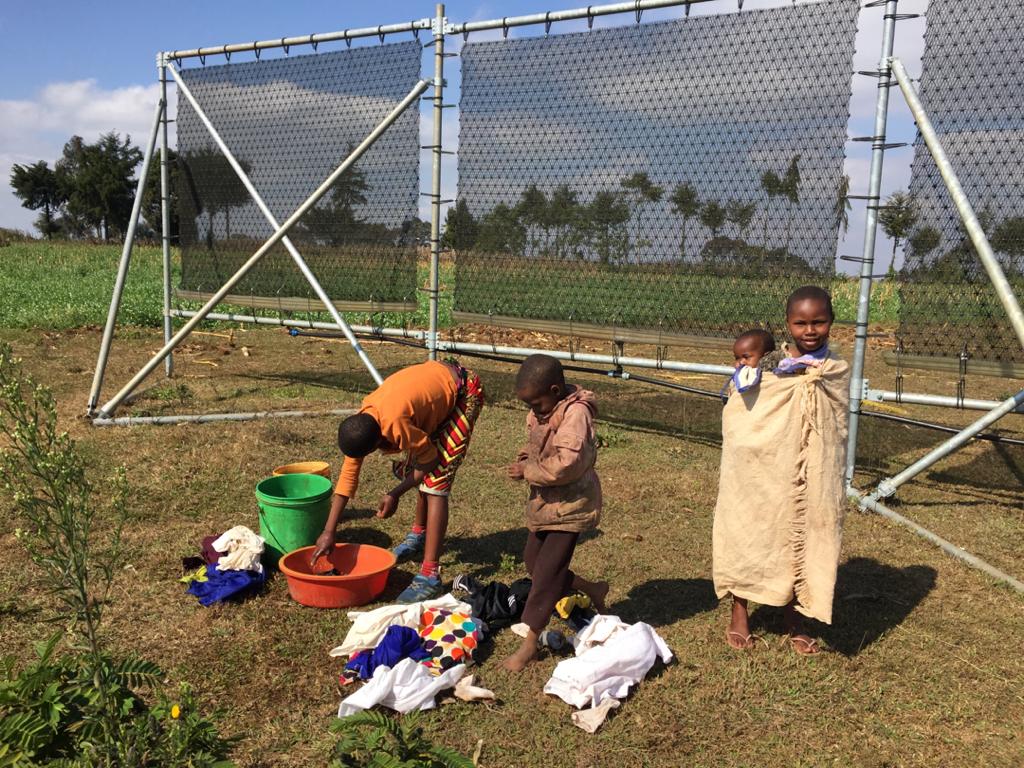
For many years, the WaterFoundation has been researching the use of fog collectors. The CloudFisher is the result of several years of joint development work with Munich-based industrial designer Peter Trautwein. The first series-produced fog collector that can withstand high wind speeds of up to 120 km/h, it is quick and easy to install, requires no energy and is extremely low-maintenance. The CloudFisher supplies high-quality drinking water at low cost in suitable regions. In addition, water extracted from fog can be used in agriculture, livestock and reforestation projects. So far, the CloudFisher is located in Morocco, Tanzania and Bolivia.
More details on CloudFisher technology!
Sanitation
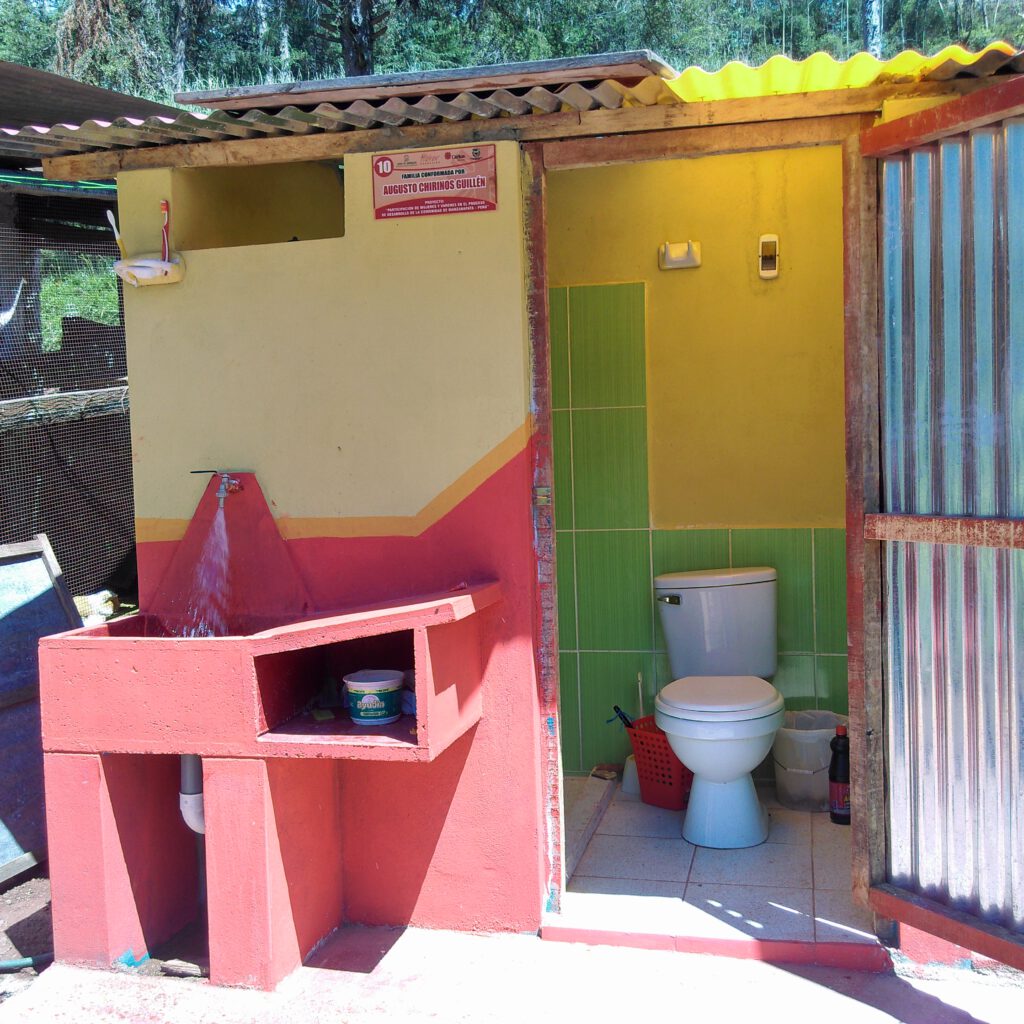
Good sanitation is a prerequisite for hygiene and the prevention of diseases. It thus contributes not only to people’s health and, in particular, to the good development of children. Rather, beneficial effects on economic strength are also the goal of countermeasures. Loss of productivity in the communities or absenteeism from school due to illness can be prevented. For this reason, WaterFoundation is building hand-washing facilities and toilets in the project regions.
Protection and promotion of ecosystems
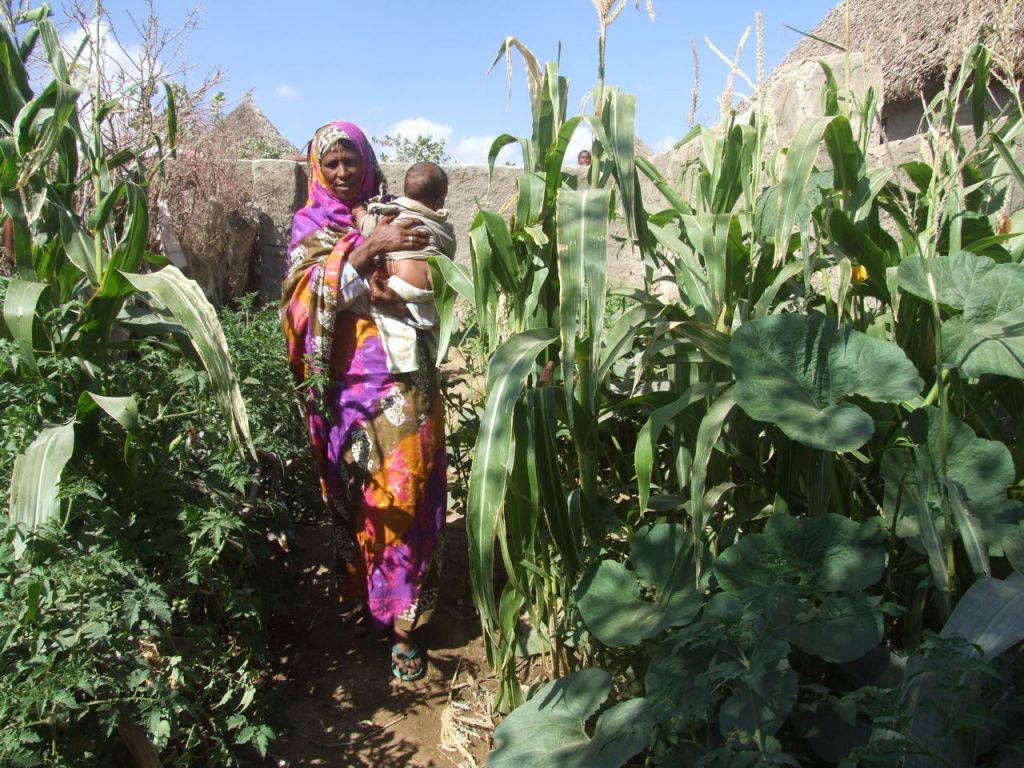
Because a functioning water supply is closely linked to healthy terrestrial ecosystems, the WaterFoundation’s commitment in poorer regions – especially in Africa and South America – serves also to preserve or restore healthy soils, thriving vegetation and thus biodiversity and climate protection. The designation of nature and water conservation areas, reforestation projects, the terracing of eroded soils and their sustainable irrigation and cultivation help to preserve the basis of life for people and animals.
Knowledge transfer
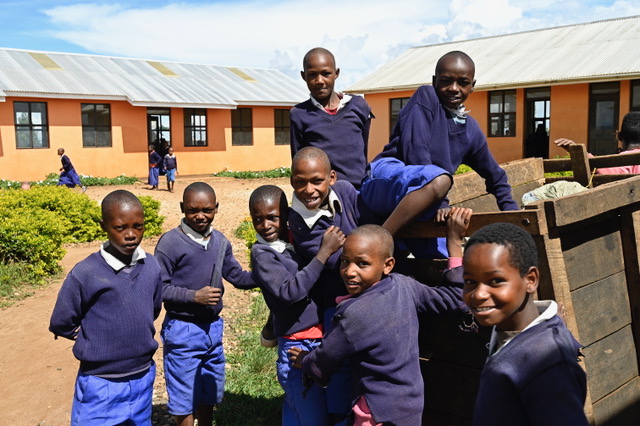
In addition to financial, technical, and practical support, the transfer of know-how is particularly important in order to secure the successes achieved in the long term. That is why our project work includes teaching basic knowledge about ecological interrelationships in schools as well as the proper use of drinking water, toilets and hygiene (WASH).
Principles of our project work
- Long-term and sustainability are the pillars of our way of working.
- We create replicable or modular models (e.g. implementation or modular use of CloudFisher in many countries).
- Successfully implemented projects are transferred to other communities or countries.
- We always work with local partners and partner organizations on the ground to gradually transfer projects to local ownership.
Local project partners
- participate in a project of the WaterFoundation with know-how, personnel, material resources, and financial support;
- provide the WaterFoundation with regular written updates on the progress of the project;
- must be a recognized NGO or research institution;
- are subject to auditing;
- are reliable, tolerant, and advocate equal opportunity regardless of gender, language, religion, health, or national, social, or ethnic affiliation;
- allow the WaterFoundation to visit the funded project;
- attach importance to an evaluation of effectiveness.